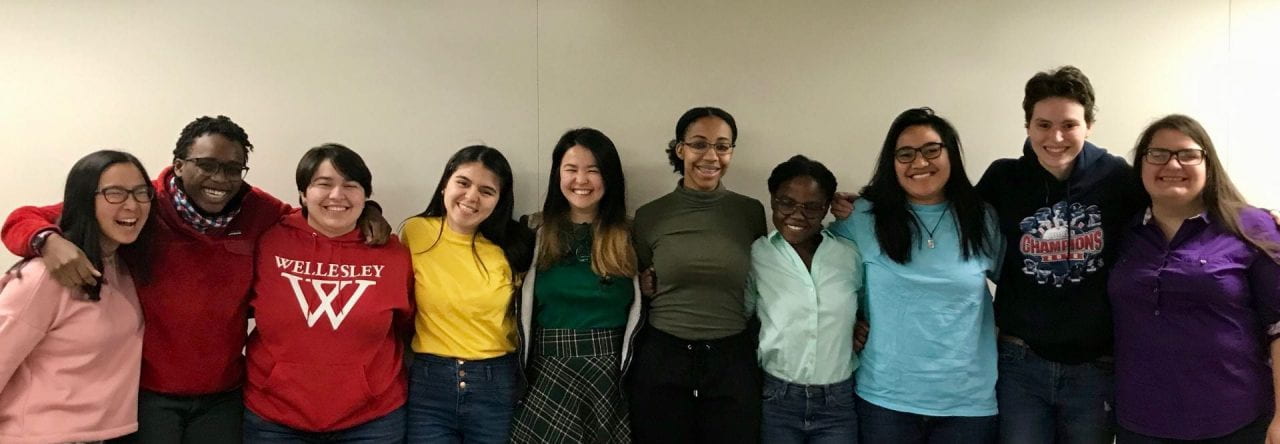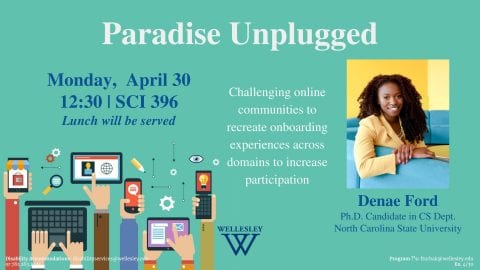On April 30, Denae Ford, PhD candidate in CS at NCSU, gave a talk titled Paradise Unplugged.
Abstract:
Online question-and-answer (Q&A) communities, like Stack Overflow, have norms that are not obvious to all users. For example, novice users create and post programming questions without feedback, and the community enforces site norms through public downvoting and commenting. This can leave users discouraged from participating due to community barriers such as posting is hard, friends are easy; fear of negative feedback; and onboarding hoops.To determine how to increase participation, we investigate two mechanisms relating to 1) identity-based signals and 2) mentorship. First, we investigate peer parity and find that women re-engage significantly sooner after receiving answers from other women on their first question. Then, we conduct a month-long study in which we redirect Stack Overflow novices in the process of asking a question to an on-site Help Room. In the Help Room, novices received feedback on their question drafts from experienced Stack Overflow mentors. We present examples and discussion of various question improvements including question context, code formatting, and wording that adheres to on-site cultural norms. We find that mentored questions are substantially improved over non-mentored questions, with average scores increasing by 50%. These results suggest we can challenge socio-technical communities to recreate onboarding experiences across domains to increase participation.
Bio:
Denae Ford is a Doctoral Candidate in the Department of Computer Science at North Carolina State University where she is a member of the alt-code lab, advised by Dr. Chris Parnin. Her research identifies cognitive and social barriers to participation in online socio-technical ecosystems. A few of these ecosystems include remote technical interviews, Stack Overflow, and GitHub using biometric sensing through eye movements and nonverbal cues. Her most recent work dismantles barriers to participation taking advantage of identity deployment, peer parity, and community mentorship.
During her tenure at North Carolina State University, she has collaborated with researchers from MIT Lincoln Laboratory, Microsoft Research, Stack Exchange, Carnegie Mellon, University of Rochester and others. These collaborations have resulted in ACM and IEEE publications which have been presented at international conferences in software engineering and human-computer interaction.
Denae is a recipient of the National GEM Consortium Fellowship, National Science Foundation Graduate Research Fellowship, and Microsoft Research Ph.D. Fellowship. She holds a Bachelor of Science and Master of Science degree in Computer Science from North Carolina State University where she also minors in Cognitive Science.


Leave a Reply